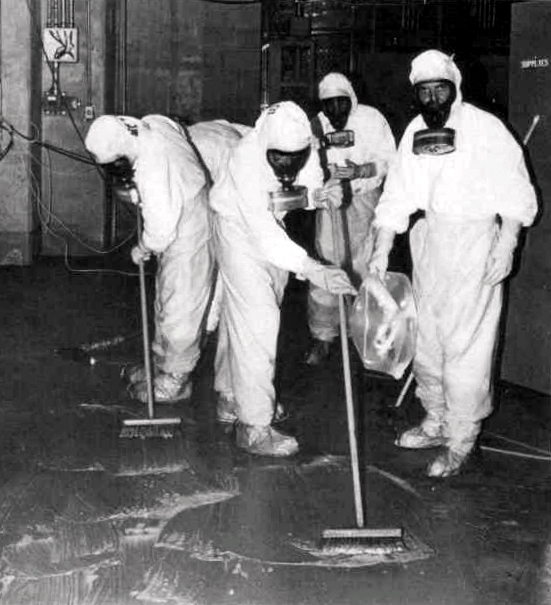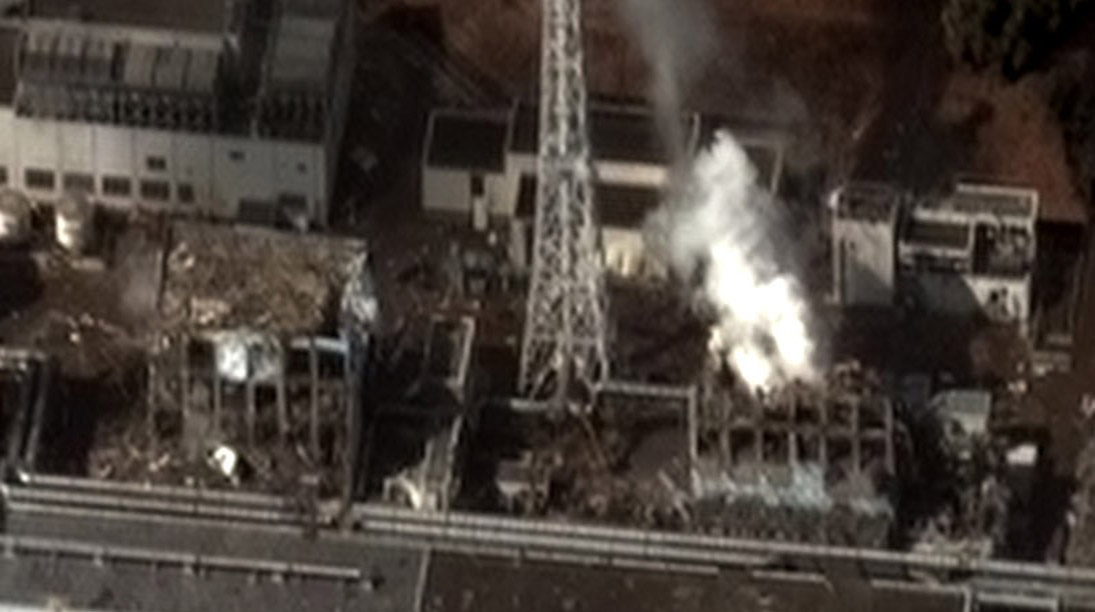|
Japanese Atomic Energy Commission
The was established in 1956 and serves as the regulatory body for nuclear power in Japan. The Atomic Energy Basic Law contained a provision for its creation, and shortly after the law was enacted, the organization started activities, which are stated to be: assure that research and use of nuclear power is conducted safely and with peaceful intentions, and construct plans for the use and development of nuclear power. It is now structured with 3 different committee members as commission of inquiry to the Cabinet Office. The AEC is located in Kasumigaseki, Chiyoda, Tokyo. See also * Agency for Natural Resources and Energy * International Nuclear Regulators' Association * Japanese Nuclear Safety Commission *Nuclear Power in Japan *Nuclear Safety On Japanese nuclear incidents and accidents: *2011 Japanese nuclear accidents *Fukushima Daiichi nuclear disaster The Fukushima nuclear accident was a major nuclear accident at the Fukushima Daiichi Nuclear Power Plant in Ōkuma, Fuk ... [...More Info...] [...Related Items...] OR: [Wikipedia] [Google] [Baidu] |
Nuclear Power In Japan
Nuclear power generated 5.55% of Japan's electricity in 2023. The country's nuclear power industry was heavily influenced by the Fukushima accident, caused by the 2011 Tōhoku earthquake and tsunami. Before 2011, Japan was generating up to 30% of its electrical power from nuclear reactors. After the Fukushima accident, all reactors were shut down temporarily. , of the 54 nuclear reactors present in Japan before 2011, there were 33 operable reactors but only 13 reactors in 6 power plants were actually operating. A total of 24 reactors are scheduled for decommissioning or are in the process of being decommissioned. Others are in the process of being reactivated, or are undergoing modifications aimed to improve resiliency against natural disasters; Japan's 2030 energy goals posit that at least 33 will be reactivated by a later date. The Fukushima accident hardened attitudes toward nuclear power. In June 2011, immediately after the accident, more than 80% of Japanese said they wer ... [...More Info...] [...Related Items...] OR: [Wikipedia] [Google] [Baidu] |
Nuclear Safety
Nuclear safety is defined by the International Atomic Energy Agency (IAEA) as "The achievement of proper operating conditions, prevention of accidents or mitigation of accident consequences, resulting in protection of workers, the public and the environment from undue Ionizing radiation, radiation hazards". The IAEA defines nuclear security as "The prevention and detection of and response to, theft, sabotage, unauthorized access, illegal transfer or other malicious acts involving nuclear materials, other radioactive substances or their associated facilities". This covers nuclear power plants and all other nuclear facilities, the transportation of nuclear materials, and the use and storage of nuclear materials for medical, power, industry, and military uses. The Nuclear power, nuclear power industry has improved the safety and performance of Nuclear reactor, reactors, and has proposed new and safer reactor designs. However, a perfect safety cannot be guaranteed. Potential sources ... [...More Info...] [...Related Items...] OR: [Wikipedia] [Google] [Baidu] |
Nuclear Technology Organizations Of Japan
Nuclear may refer to: Physics Relating to the nucleus of the atom: *Nuclear engineering *Nuclear physics *Nuclear power *Nuclear reactor *Nuclear weapon *Nuclear medicine *Radiation therapy *Nuclear warfare Mathematics *Nuclear space *Nuclear operator *Nuclear congruence *Nuclear C*-algebra Biology Relating to the nucleus of the cell: * Nuclear DNA Society *Nuclear family, a family consisting of a pair of adults and their children Music * "Nuclear" (band), chilean thrash metal band * "Nuclear" (Ryan Adams song), 2002 *"Nuclear", a song by Mike Oldfield from his ''Man on the Rocks'' album * ''Nu.Clear'' (EP) by South Korean girl group CLC Films * ''Nuclear'' (film), a 2022 documentary by Oliver Stone. See also *Nucleus (other) *Nucleolus *Nucleation *Nucleic acid *Nucular ''Nucular'' is a common, proscribed pronunciation of the word "nuclear". It is a rough phonetic spelling of . The ''Oxford English Dictionary''s entry dates the word's first published appeara ... [...More Info...] [...Related Items...] OR: [Wikipedia] [Google] [Baidu] |
Radiation Effects From Fukushima Daiichi Nuclear Disaster
The radiation effects from the Fukushima nuclear accident are the observed and predicted effects as a result of the release of radioactive isotopes from the Fukushima Daiichi Nuclear Power Plant following the 2011 Tōhoku earthquake and tsunami. The release of radioactive isotopes from reactor containment vessels was a result of venting in order to reduce gaseous pressure, and the discharge of coolant water into the sea. This resulted in Japanese authorities implementing a 30 km exclusion zone around the power plant and the continued displacement of approximately 156,000 people as of early 2013. The number of evacuees has declined to 49,492 as of March 2018. Radioactive particles from the incident, including iodine-131 and caesium-134/137, have since been detected at atmospheric radionuclide sampling stations around the world, including in California and the Pacific Ocean. Preliminary dose-estimation reports by the World Health Organization (WHO) and the United Nati ... [...More Info...] [...Related Items...] OR: [Wikipedia] [Google] [Baidu] |
Japanese Nuclear Incidents ...
This is a list of Japanese atomic, nuclear and radiological accidents, incidents and disasters. List List of plants affected by 2011 Tōhoku earthquake and tsunami * Onagawa Nuclear Power Plant * Higashidōri Nuclear Power Plant * Tōkai Nuclear Power Plant * Tsuruga Nuclear Power Plant * Rokkasho Reprocessing Plant See also * Nuclear power in Japan * List of civilian nuclear accidents * List of civilian nuclear incidents * List of civilian radiation accidents * List of military nuclear accidents References {{DEFAULTSORT:Japanese nuclear incidents Nuclear accidents and incidents Nuclear history of Japan Nuclear Nuclear technology-related lists Nuclear Nuclear may refer to: Physics Relating to the nucleus of the atom: *Nuclear engineering *Nuclear physics *Nuclear power *Nuclear reactor *Nuclear weapon *Nuclear medicine *Radiation therapy *Nuclear warfare Mathematics * Nuclear space *Nuclear ... [...More Info...] [...Related Items...] OR: [Wikipedia] [Google] [Baidu] |
Japanese Reaction To Fukushima Daiichi Nuclear Disaster
The Japanese reaction occurred after the Fukushima Daiichi nuclear disaster, following the 2011 Tōhoku earthquake and tsunami. A nuclear emergency was declared by the government of Japan on 11 March. Later Prime Minister Naoto Kan issued instructions that people within a zone around the Fukushima Daiichi nuclear plant must leave, and urged that those living between 20 km and 30 km from the site to stay indoors. The latter groups were also urged to evacuate on 25 March. Japanese authorities admitted that lax standards and poor oversight contributed to the nuclear disaster. The government came under fire for their handling of the emergency, including the slow release of data on areas which were likely to be exposed to the radioactive plume from the reactor, as well as the severity of the disaster. The accident is the second biggest nuclear accident after the Chernobyl disaster, but is more complicated as three reactors suffered at least partial meltdowns. Once a propo ... [...More Info...] [...Related Items...] OR: [Wikipedia] [Google] [Baidu] |
Fukushima Daiichi Nuclear Disaster
The Fukushima nuclear accident was a major nuclear accident at the Fukushima Daiichi Nuclear Power Plant in Ōkuma, Fukushima, Japan, which began on 11 March 2011. The cause of the accident was the 2011 Tōhoku earthquake and tsunami, which resulted in electrical grid failure and damaged nearly all of the power plant's Emergency power system, backup energy sources. The subsequent inability to sufficiently cool reactors after shutdown compromised Primary containment, containment and resulted in the release of radioactive contamination, radioactive contaminants into the surrounding environment. The accident was rated seven (the maximum severity) on the International Nuclear Event Scale by Nuclear and Industrial Safety Agency, following a report by the JNES (Japan Nuclear Energy Safety Organization). It is regarded as the worst nuclear incident since the Chernobyl disaster in 1986, which was also rated a seven on the International Nuclear Event Scale. According to the United Nati ... [...More Info...] [...Related Items...] OR: [Wikipedia] [Google] [Baidu] |
2011 Japanese Nuclear Accidents
The Fukushima nuclear accident was a major nuclear accident at the Fukushima Daiichi Nuclear Power Plant in Ōkuma, Fukushima, Japan, which began on 11 March 2011. The cause of the accident was the 2011 Tōhoku earthquake and tsunami, which resulted in electrical grid failure and damaged nearly all of the power plant's backup energy sources. The subsequent inability to sufficiently cool reactors after shutdown compromised containment and resulted in the release of radioactive contaminants into the surrounding environment. The accident was rated seven (the maximum severity) on the International Nuclear Event Scale by Nuclear and Industrial Safety Agency, following a report by the JNES (Japan Nuclear Energy Safety Organization). It is regarded as the worst nuclear incident since the Chernobyl disaster in 1986, which was also rated a seven on the International Nuclear Event Scale. According to the United Nations Scientific Committee on the Effects of Atomic Radiation, "no a ... [...More Info...] [...Related Items...] OR: [Wikipedia] [Google] [Baidu] |
Nuclear Power In Japan
Nuclear power generated 5.55% of Japan's electricity in 2023. The country's nuclear power industry was heavily influenced by the Fukushima accident, caused by the 2011 Tōhoku earthquake and tsunami. Before 2011, Japan was generating up to 30% of its electrical power from nuclear reactors. After the Fukushima accident, all reactors were shut down temporarily. , of the 54 nuclear reactors present in Japan before 2011, there were 33 operable reactors but only 13 reactors in 6 power plants were actually operating. A total of 24 reactors are scheduled for decommissioning or are in the process of being decommissioned. Others are in the process of being reactivated, or are undergoing modifications aimed to improve resiliency against natural disasters; Japan's 2030 energy goals posit that at least 33 will be reactivated by a later date. The Fukushima accident hardened attitudes toward nuclear power. In June 2011, immediately after the accident, more than 80% of Japanese said they wer ... [...More Info...] [...Related Items...] OR: [Wikipedia] [Google] [Baidu] |
Atomic Energy Basic Law
is a Japanese law passed December 19, 1955. It outlined the basics for the use of nuclear power in Japan. Overview Article 1 (Objective) The objective of this Law should be to secure energy resources in the future, to achieve the progress of science and technology and the promotion of industries by fostering the research, development and utilization of atomic energy and thereby to contribute to the welfare of mankind and to the elevation of the national living standard. Article 2 (Basic policy) The research, development and utilization of atomic energy shall be limited to peaceful purposes, aimed at ensuring safety and performed independently under democratic management, the results therefrom shall be made public to contribute to international cooperation. *Article 3 outlines definitions. *Articles 4-6 create the Japanese Atomic Energy Commission and the Nuclear Safety Commission and outline their basic purpose. *Article 7: Atomic Energy Development Institutions. This sect ... [...More Info...] [...Related Items...] OR: [Wikipedia] [Google] [Baidu] |
Japanese Nuclear Safety Commission
Japan's was a commission established within the Cabinet of Japan as an independent agency to play the main role in nuclear safety administration. Commissioners are appointed by the Prime Minister of Japan on Diet approval. The commission has stronger authority than any other ordinary advisory committees, in that the commission can make recommendations to relevant agencies in the name of the prime minister if it is necessary. The Nuclear Safety Commission reviews safety inspections conducted by regulatory agencies, such as the Nuclear and Industrial Safety Agency. In 2007, the independence of the Nuclear Safety Commission was questioned by seismologist Professor Katsuhiko Ishibashi, after a senior Nuclear and Industrial Safety Agency official appeared to rule out a new review of the NSC's seismic design standards.Katsuhiko Ishibashi"Why worry? Japan's nuclear plants at grave risk from quake damage" ''The Asia-Pacific Journal: Japan Focus'' (August 11, 2007) Also published by th ... [...More Info...] [...Related Items...] OR: [Wikipedia] [Google] [Baidu] |





